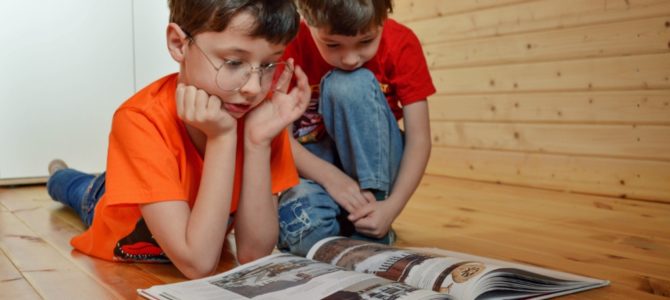
Millions of families have been confronted with on-again, off-again public school schedules and the physically draining and mentally challenging chore of spending hours in front of a screen. Their concerns rise above and beyond the threat of getting COVID-19 — there’s a general, and understandable, desire to safeguard children from unsettling uncertainties. In response, millions have turned to home schooling to help their children learn.
Conducted for nearly six months from April through October, the National U.S. Census Pulse Survey found millions of children were home schooling. My organization, the Home School Legal Defense Association, has seen unparalleled interest and an uptick in membership. Indeed, while public school systems are lamenting declining enrollment numbers by the tens of thousands as parents pull the plug on “Zoom school,” nearly every home school-related business reports unprecedented increases in demand for their products and services,
For decades, home schooling has been a small, but steadily growing movement. Over time, it has racked-up impressive and positive results, despite those outcomes being under-reported and under-researched. Research has shown that home-schooled children are as socially competent as their peers, are as successful in higher education, and are more politically tolerant.
The academic success of home-schooled children continues to shine through, as home-schooled children perform better on standardized achievement tests and often have higher college GPAs. College admissions officers have routinely expressed that home-schooled students show up better prepared to learn and can “hit the ground running.”
Unfortunately, since its inception as a community-based and parent-led form of instruction, public education has changed dramatically. From its humble well-intentioned roots, it’s becoming a big-government monopoly. Studies have shown that public school systems allocate far less money to classroom instruction compared to administrative overhead, have become ever more bureaucratic, and are overly focused on standardization.
Yet, even with many good people involved trying to do the best they can for children, national polls show increasing dissatisfaction with public education. The current disruption of education shows that replicating the in-school model through Zoom may not be the best approach. But as schools try to figure this out, parents are voting with their feet and are finding a welcome home in the home schooling community.
Home schooling has always offered more flexibility, child focus, and parent involvement. These are key contributors to its positive outcomes. As steadily increasing numbers of parents experience these benefits and embrace home schooling for the long term, I expect to see more satisfaction in families and children who are home schooling.
It is certainly the case that home schooling may not be for everyone, but it must always be freely available to anyone. While there may be a place for government-run education, there must always be a place for educational freedom in our pluralistic, diverse society.
History has shown what catastrophes can happen when government controls and dictates what is taught, how it is taught, and how it is measured. Today, current evidence shows how even modern democracies can lose their way by thinking that more government control of education is good for society.
In his crusade to crack down on Islamic radicalism and separatism, President Emmanuel Macron of France recently announced he wants to erase the possibility of home schooling and even jail parents who dare to home school. The problem is that there is little evidence to link home schooling to Islamic radicalism or separatism in any way. Germany has been notorious for years in its hostility to home schooling, resulting in the flight of thousands of families to other countries so that they can homeschool freely.
There is good news, however, in some places like Brazil, where home schooling is growing rapidly. The Bolsonaro administration is championing the cause of home schooling with supportive legislation that also maintains home-schooled kids would required to be vaccinated and pass national testing to stay home-schooled. Seizing the moment, home school advocates in Brazil are hopeful the Federal Congress will make home schooling an explicit alternative to school soon.
Ultimately, education is more than school attendance, graduation rates, and test scores. Education is not just about creating docile citizens who vote and get a job — it is about empowering individuals to achieve their highest potential. Education is a process whereby a person accumulates knowledge, understanding, and awareness of his or her unique capacity, interests, and notions of fulfillment.
A robust and socially accepted home schooling movement is good for America because it supports the very ideals of pluralism and self-governance that form the pillars of our nation. At its core, an enduring America requires a robust defense of creativity, personal liberty, and innovation. Home schooling is a straight road to these goals and one that should be freely available always to everyone, everywhere.









